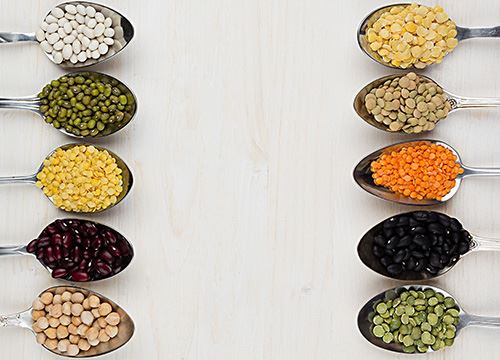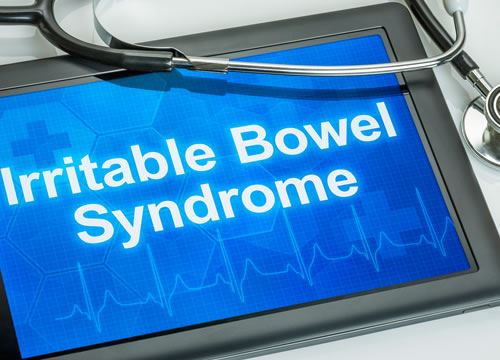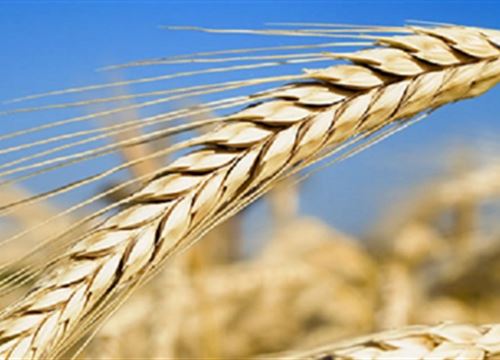Latest research
Here we provide you with a selection of research paper summaries from the latest medical journal publications.
20.11.2018

Gluten-free and low-FODMAP sourdoughs for patients with celiac disease and irritable bowel syndrome (IBS): A clinical perspective
Gluten is often vilified as a trigger for a variety of gastrointestinal (GI) symptoms, which has increased the demand for gluten-free products worldwide. In the United States, approximately 20% of consumers report that they avoid gluten, despite the fact that only 1% of the population is afflicted with celiac disease.
Read more...
20.11.2018

Clinical Applications of Dietary Therapies in Irritable Bowel Syndrome (IBS)
Over the last decade, there has been renewed interest in the role of dietary therapies in IBS. Both the British Dietetic Association (BDA) and National Institute for Health and Clinical Excellence (NICE) guidance recommends healthy eating and lifestyle management as first-line advice for IBS.
Read more...
24.10.2018

Younger age at diagnosis predisposes to mucosal recovery in celiac disease on a gluten-free diet
Villous atrophy can result in malabsorption leading to nutrient-deficiencies, one of the complications of celiac disease. Mitigation of villous atrophy associated with celiac disease include adherence to a gluten free diet (GFD) upon diagnosis which lead to mucosal recovery.
Read more...
24.10.2018

Healthcare outcomes for early celiac disease screening
The clinical presentation of celiac disease varies. Many individuals are asymptomatic or present with extra-intestinal symptoms. Therefore, manysufferers remain undiagnosed.
Read more...
26.06.2018

Celiac Disease and Psoriasis
An important update on the digestive tract and psoriasis, recently published in the journal Archives of Dermatological Research, summarises the clinical and epidemiological data currently available on the possible association between psoriasis and celiac disease.
Read more...
24.05.2018

Celiac disease and cardiovascular risk: greater attention needed
Greater attention needs to be paid to the pre-clinical signs of atherosclerosis in celiac patients to prevent cardiovascular disease. These are the findings which have emerged from a recent review (December 2017) carried out by a team of Italian researchers, detailing the latest evidence on the link between celiac disease, atherosclerotic process acceleration, and cardiovascular risk.
Read more...
20.04.2018

Celiac disease, a study confirms the importance of screening in subjects with iron deficiency
Iron deficiency is one of the most common nutritional deficiencies throughout the world, a phenomenon which affects both developed and developing countries. There are many possible causes of iron deficiency, the most common being blood loss and poor absorption of iron in the intestine.
Read more...
21.03.2018

Fermentable short-chain carbohydrate (FODMAP) content of common plant-based foods and processed foods suitable for vegetarian and vegan-based eating patterns
Expansion of the current FODMAP database to provide more food sources of key macro- and micro nutrients for vegetarians and vegans is needed. Furthermore, increased understanding of the opportunity to reduce FODMAP content of plant-based foods via food processing and cooking techniques may also help to improve nutritional adequacy in this patient group.
Read more...
29.01.2018

The Overlapping Area of Non-Celiac Gluten Sensitivity (NCGS) & Wheat-Sensitive Irritable Bowel Syndrome (IBS): An update.
NCGS is characterised by intestinal and extra-intestinal symptoms related to the ingestion of gluten-containing food in patients not affected by celiac disease (CD) or wheat allergy (WA). IBS is characterised by abdominal pain, bloating, gas, diarrhoea and constipation. There is considerable overlap between the IBS and NCGS clinical picture with research supporting the hypothesis that gluten and other wheat components may trigger IBS symptoms. The overlap and absence of IBS/NCGS biomarkers creates a confusing situation. This review article aimed to present 1) an update on the complex relationship between NCGS and IBS and 2) expert opinion on this topic.
Read more...
27.09.2017

Reliable diagnosis of celiac disease in children without endoscopy
Over decades the diagnosis of celiac disease affecting about 1% of our children and adolescents required an upper endoscopy. Now a large international study – coordinated by the Dr. von Hauner Children’s Hospital, Ludwig-Maximilians-Universität, Munich, Germany – showed that in more than 50% of affected children, endoscopy can be omitted without reducing the accuracy of the diagnosis.
Read more...
25.07.2017

Study Confirms Association Between Celiac Disease and Psychiatric Disorders in Children
In March 2017, Journal of Pediatrics published a study that investigated the link between celiac disease (CD) and psychiatric disorders in children. The objective of this study was to determine whether an association between CD and psychiatric disorders in children exists, and to determine the risk of childhood psychiatric disorders in siblings of children with CD.
Read more...
09.06.2017

Duodenal biopsies for the diagnosis of coeliac disease: are we adhering to current guidance?
Coeliac disease (CD) can present with a wide range of non-specific abdominal symptoms, alongside a number of atypical symptoms. As a result, it is important to ensure that when CD is a considered as a potential diagnosis, patients are adequately investigated to avoid missed or delayed diagnosis.
Read more...
21.03.2017

Less hidden celiac disease but increased gluten avoidance without diagnosis in the United States: Findings from the National Health and Nutrition Examination Surveys from 2009 to 2014
This article provides evidence based data about the use of the gluten free diet (GFD) in the U.S. There have been many market based reports indicating the growing number of people who turn to the GFD, from both the food industry and market research groups. To date these reports have indicated increased use of the GFD based on retail market sales and growth of the gluten free segment in the food industry, but have not provided any insight on the end user.
Read more...
28.11.2016

Preventing Gluten Cross-Contamination
Gluten cross-contamination happens when gluten-free (GF) food comes in contact with food containing gluten and/or cooking utensils that have been used to process it. Short of growing their own GF food, preparing all their meals at home, and never eating out, there’s no guarantee that your patients’ food is free of cross-contamination. The restaurant business is notorious for lack of education and preparation to prevent gluten cross-contamination.
Read more...
28.11.2016

Long-term response to gluten-free diet as evidence for non-celiac wheat sensitivity in one third of patients with diarrhea-dominant and mixed-type irritable bowel syndrome
Irritable bowel syndrome (IBS) is a common functional bowel disorder with a recognized social and economic impact due to the associated reduced quality of life and high rates of IBS-related non-productive time. New evidence finds that subgroups of IBS patients may be “gluten sensitive” and could therefore respond to a gluten-free diet (GFD) even in the absence of the histological abnormalities characteristic of celiac disease (CD).
Read more...

Research Summary: Intestinal cell damage and systemic activation in individuals reporting sensitivity to wheat in the absence of celiac disease
Non-celiac gluten sensitivity (NCGS) and non-celiac wheat sensitivity (NCWS) have been often used to describe individuals suffering from a wide range of gastrointestinal symptoms commonly associated with celiac disease (CD). This study attempts to find a link between the immune response to gliadin (a protein component of gluten) and damage to the intestinal wall in these individuals.
Read more...
04.08.2016

Frozen Food from the Nutritional Point of View
Freezing food as a method of preservation ensures quality and food safety standards are observed while preserving both food’s flavor and nutritional value.
The wider range of frozen goods available in the market today also provides convenience and variety.
The wider range of frozen goods available in the market today also provides convenience and variety.
Read more...
21.06.2016

Long-term care for patients with Coeliac Disease: A review of the literature and future directions
National and international guidelines advocate long-term follow-up of coeliac patients to help control ongoing symptoms, facilitate adherence to a GFD and to avoid complications. However, uncertainty exists about the provision of follow-up care. This narrative review evaluates the various methods of follow up and the differing tools used for assessment of dietary adherence.
Read more...
21.06.2016

Patients with coeliac disease reported higher consumption of added sugar and total fat than healthy individuals
The aim of this study was to compare the food and nutrient intake of patients with CD aged between 10-23 years old with non-coeliac controls matched by age, gender and BMI.
Read more...
17.06.2016

Vegetarian Diet and Coeliac Disease
It is a well-known fact that the vegetarian diet excludes all types of fish and meat, while the vegan diet also excludes all other foodstuffs originating from animals, such as dairy products and eggs. Most people who choose to follow a vegetarian or vegan lifestyle do so because of the health benefits, for ethical and religious reasons, or because of environmental protection and economic factors. There has also been an increase in the number of people with specific dietary requirements who decide to adopt a vegetarian/vegan diet, including children and teenagers as well as adults suffering from coeliac disease
Read more...
10.05.2016

Anaemia in pediatric celiac disease: association with clinical and histological features and response to a gluten-free diet
One of the most common manifestations of CD in children in iron-deficiency anaemia. This retrospective study compared a variety of clinical, histological, serological and laboratory findings and dietary response between children presenting with and those without anaemia at CD diagnosis.
Read more...
05.05.2016

Efficacy of a gluten-free diet in subjects with irritable bowel syndrome- diarrhea unaware of their HLA-DQ2/8 genotype
IBS-D accounts for almost one third of IBS patients and is the predominant subtype of IBS encountered in clinical practice. Research suggests that 84% of patients with IBS believe that food triggers their gastrointestinal symptoms and of these, gluten-based products are cited by approximately 1 in 4 patients as a common trigger. These observations have given rise to the clinical entity known as ‘non-celiac gluten sensitivity’ (NCGS). However, NCGS remains a controversial condition due to the existence of co-existing non-gluten components (including FODMAPs) that have also been demonstrated to induce IBS symptoms
Read more...
08.04.2016

Evidence for the Presence of Non-Celiac Gluten Sensitivity in Patients with Functional Gastrointestinal Symptoms
Non-celiac gluten sensitivity (NCGS) is a syndrome characterised by intestinal and extra-intestinal symptoms related to the ingestion of gluten-containing food. Currently, available blood tests and histology do not help towards making the differential diagnosis, hence response to a gluten free diet in the absence of celiac disease (CD) or wheat allergy (WA) is the fundamental principal of diagnosis for NCGS. Unfortunately, the placebo effect, in addition to the presence of other active compounds within wheat, e.g amylase trypsin inhibitors (ATIs), and FODMAPs, may act as confounding factors when analysing the impact of gluten withdrawal amongst potential NCGS sufferers.
Read more...
www.drschaer-institute.com
